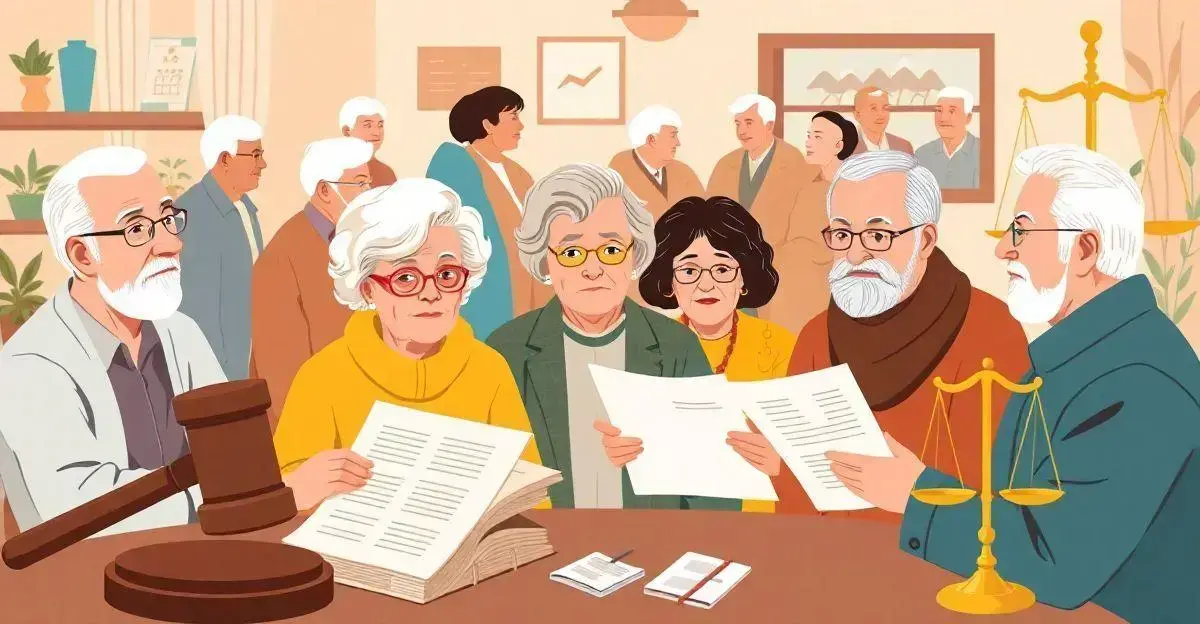Understanding Garnishment Laws
Understanding garnishment laws is essential for anyone concerned about debt collection practices, especially those asking, can a pension be garnished for credit card debt? Garnishment occurs when a creditor obtains a legal order to take money directly from your paycheck, bank account, or other sources of income.
Each state has different laws governing how garnishments happen and the types of debts that can result in garnishment. Generally, credit card debt may lead to garnishment if a court rules in favor of the creditor.
Specific procedures must be followed for a garnishment to occur, including providing notice to the debtor and the chance to respond. It’s crucial to know your rights; you may be protected against garnishment, depending on the type of income or assets you possess.
In many cases, federal and state laws provide protections to certain types of income, such as social security benefits and pensions, making it difficult for creditors to access these funds. Understanding these distinctions can help you safeguard your income and plan a strategy for managing your debts effectively.
Seeking legal advice can also be beneficial in clarifying your rights and obligations under the law.
What Debts Can Garnish Your Pension?

Understanding the rules surrounding these debts is crucial. It’s important to note that each state might have different laws regarding pensions and garnishment. Being aware of your rights can help you take proactive steps to protect your retirement income.
Additionally, seeking legal guidance is advisable if you believe your pension may be at risk. Preparing yourself with knowledge can help you navigate these financial challenges effectively.
Steps to Protect Your Pension
Additionally, consider the following steps:
- Document your income: Keep track of your pension statements and any relevant documents.
- Consult a lawyer: Speaking with a legal professional can help you understand your rights and options.
- Credit counseling: Engaging with credit counseling services may provide you with useful strategies to manage debt without risking your pension.
- Consider setting up a trust: In some cases, establishing a trust may offer additional protection for your retirement funds.
- Stay informed: Keep updated on any changes in laws affecting pensions and retirement savings.
Taking these steps can help you safeguard your finances and enjoy a more stable retirement.
Legal Rights of Pensioners

Can a pension be garnished for credit card debt? Understanding the legal rights of pensioners is crucial, especially when facing potential garnishment. Pensions are typically protected by state laws, but knowing your rights can help you if a creditor attempts to access your funds.
Generally, creditors cannot garnish pension income for most types of debts, such as credit cards or personal loans. However, certain exceptions exist, including federal tax debts, child support, and student loans.
It is important to review your pension plan documents and consult legal resources to fully understand what protections are available to you. If you find yourself in a situation where your pension may be threatened, seeking legal advice can provide clarity and help you navigate the complexities of the law.
Additionally, document all correspondence with creditors, as this information may be valuable in defending against any attempts to garnish your pension. Being proactive and informed about your rights can help you maintain your financial security in retirement.
Alternatives to Garnishment
Another alternative is credit counseling. Credit counselors can help create a budget and provide advice on managing debt. Debt consolidation is also a possibility, allowing you to combine multiple debts into one loan with a lower interest rate.
Additionally, consider bankruptcy as a last resort, which can eliminate some debts, though it carries long-term consequences. Lastly, communicating with creditors about your financial struggles can sometimes lead to more flexible payment options, paving the way for a manageable resolution to your debt situation.
Seeking Legal Advice

Can a pension be garnished for credit card debt? Seeking legal advice is a crucial step if you are concerned about potential garnishment of your pension. Consulting with an attorney who specializes in debt collection laws will provide valuable insights into your rights and help clarify whether your pension is protected under state law.
A qualified attorney can assist in determining what options are available to you, strengthening your position to negotiate or contest any garnishment attempts. Bringing all relevant documentation—such as debt details and any creditor communications—can help a lawyer assess your situation and offer precise guidance.
Acting quickly when facing garnishment issues is essential. The sooner you seek legal help, the better your chances of safeguarding your assets. Many attorneys also offer free consultations, making it easier to access legal support without a significant financial commitment.
Can a Pension be Garnished for Credit Card Debt? Final Considerations
Understanding how to protect your pension from garnishment is essential for securing your financial future. By knowing the laws, exploring alternatives, and seeking professional legal advice, you can effectively manage your debts.
Being proactive in these areas helps safeguard your hard-earned retirement savings from creditors. Pensions offer vital security during retirement, and the right knowledge can empower you to make informed decisions.
Stay informed about your legal rights and seek assistance when needed to navigate financial challenges successfully.